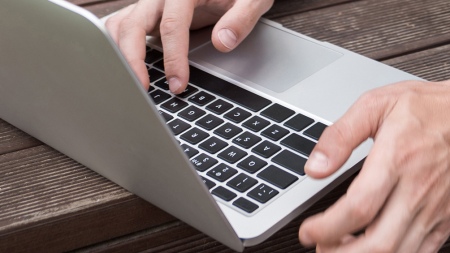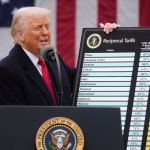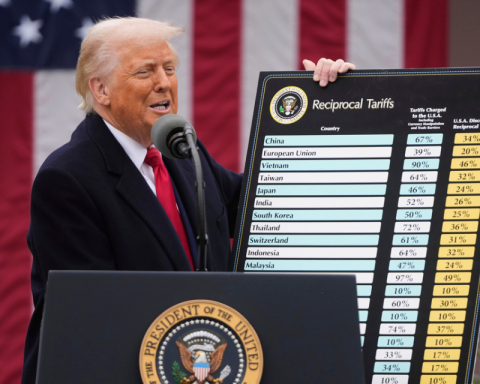The Government reintroduced the import tariffs of four classes of laptops or notebooks with the purpose of “strengthening the industrial sector in question” raising them from zero to 8% and 16%, depending on the case, in a measure that satisfied the local business community, who had been claiming it since 2017.
The measure was formalized through Decree 136/2023, published in the Official Gazette, and implies the partial revision of Decree 117 of February 2017, by which The government of former President Mauricio Macri reduced the import tariff on a series of computer products to zerowith the consequent closure of plants and layoffs of thousands of workers.
This way, the rate of tariff item 8471.30.12 is increased to 8%, which includes units “of less than 3.5 kilograms in weight, with an alphanumeric keyboard of at least 70 keys and with a screen with an area greater than 140 square centimeters and less than 560 cm2”, and the same percentage for positions 8471.30.19 and 8471.30.90, cataloged as “others” in the Mercosur Common Nomenclature (NMC)”.
“In the same vein, it is convenient to modify the applicable rate for Extra-Zone Import Rights (DIE) in relation to the tariff position of the Mercosur Common Nomenclature 8471.30.11, establishing it at a level of 16%,” he added, in reference to what the NMC classifies as “weighing less than 350 grams with an alphanumeric keyboard of at least 70 keys and with a screen area of less than 140 cm2”.
The decision “will allow both notebook markets to coexist, imported ones on the one hand and national manufacturing and national assembly on the other, allowing new employees to be incorporated into the factories”pointed out to Télam Federico Freitag, president of Solution Box.
The manager of the Argentine Chamber of Multimedia, Office automation, Communications and Related Activities (Camoca), Carlos Scimone, assured Télam that the measure “is an important advance, which we have been asking for”, and predicted that “in the second semester it will feel in prices, which are going to improve a lot”.
“It is the first time that, by raising tariffs, prices are going to fall,” he said, understanding that it will move from a situation in which “three companies (HP, Dell and Lenovo) manage the market and now they are going to appear five or six more, so the competition is going to be important”.
In the same sense, Guillermo Freund, president of the electronic sector of Cadieel (Argentine Chamber of Electronic, Electromechanical and Lighting Industries) expressed himself, who confided to this agency that the zero tariff of 2017 “generated a very bad situation for the sector”.
“Plants were closed, many people were laid off, and above all, a virtuous process of developing technologies and capacities for computer production that also derives in other categories, because starting from working with mass products such as a notebook, one can think of develop and produce other things, as has happened in various companies,” Freund described.
For his part, andhe executive director of Positivo BGH, Juan Ponelli, told Télam that “the decree reflects a request that the Industry had been making for a long time”, due to the fact that imported computer products return to the common external tariff of Mercosur ” allows national manufacturers to return to a much more sustainable business model”.
“A 16% tariff for this type of product allows us to get out of the exception that represented the 0% that it had until now, and from the 35% exception that we had in the past, it is a mature measure, a very healthy balance point for all players in the industry,” Ponelli said.
In this regard, Freund remarked that what the decree achieves is “putting us on an equal footing with the Brazilian industry,” and asserted that he did not know “what are the reasons why the Argentine computer industry cannot have the same conditions as the Brazilian one, beyond the lobby of some sectors”.
In the recitals of the decree it was indicated that “due to its economic and social impact, the development and promotion of a national industry that produces portable computer equipment is a priority in the policies developed by the National Government.”
Taking a contrary position, from Argencon -the entity that brings together companies that provide services from all verticals of the Knowledge Economy- pointed out that PCs, notebooks and tablets, “far from being luxury items, are essential technologies required by our industries in general, and particularly by the knowledge industries”.
“Its rise will affect workers who use technology as a way of life, including a wide range of users that includes freelancers, small businesses, SMEs and already consolidated companies. These types of measures delay the development of our industries making their operations more expensive” Argencon stressed in a statement.
Finally, Pablo Rubio, CEO of the national company for the distribution and manufacture of technological products, Novatech, said that there will be no price increase in nationally produced notebooks and tablets and that the increase in the import tariff “is great news for the industry , since now we will be able to manufacture our brands or those of third parties at competitive prices and we are convinced that it will not generate an increase in the prices paid by our customers”.
“There are many multinational companies with plans to start production in our country and this measure favors that decision, which would prevent them from increasing the values of the products due to the increase in tariffs on the finished product, since it generates greater competition and can supply 100% of national consumption”, Rubio completed.


















